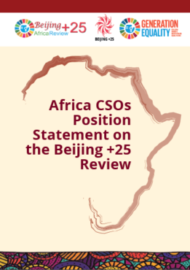Universal Access to Reproductive Health Services
By Felogene Anumo
Theme 2012
The Day of 5 Billion was marked with a lot of interest in July 1987. This led to a Resolution 89/46, in 1989, by the Governing Council of the United Nations Development Programme, which recommended that 11 July should be observed as World Population Day.
This year, World Population Day was celebrated on 11th July 2012 themed Universal access to Reproductive health services, pushing UNFPA’s vision, a world where every pregnancy is wanted, every childbirth safe, and every young person’s potential is fulfilled. It was marked by The London Summit on Family Planning co sponsored by The Bill & Melinda Gates foundation, United Nations Population Fund (UNFPA), UK Aid and UK Government’s Department for International Development (DFiD).
Facts
Access to sexual and reproductive health is a key element to the fight against poverty. According to UNFPA, some 222 million women who would like to avoid or delay pregnancy lack access to effective family planning. Nearly 800 women die every day in the process of giving life. About 1.8 billion young people are entering their reproductive years, often without the knowledge, skills and services they need to protect themselves.
Despite these glaring facts and the harsh reality, most young people lack the information and resources necessary to make healthy choices, including protection against HIV/AIDS, other sexually transmitted infections (STIs), and the development of healthy relationships. The health and social-economic consequences of teenage pregnancy are enormous. Early parenthood is likely to affect educational achievements with significant employment and socio-economic ramifications, while health complications for both teen mother and her unborn child or infant child are very high.The UNFPA estimates that 1 in 22 women in sub-Sahara dies from maternal causes, compared to 1 in 120 in Asia and 1 in 7,300 in developed countries.
The situation in Africa
Africa, home to one billion people, is the world’s second most-populous continent, after Asia. Africa is also the continent with the world’s highest birth rate and the highest projected population growth rate in 2050 of 1.2 billion people. Modern contraceptive use in Africa is low; in 2012 an estimated 645 million women of reproductive age (15–49 years) in the developing world are using modern contraceptive methods — 42 million more than in 2008, while less than 10% of women in Middle and Western Africa use any modern contraceptive method.
This makes family planning difficult, leading to unwanted or miss-timed pregnancies, which often leads to many adolescents resorting to unsafe abortions which contribute immensely to maternal mortality.
- Women and girls with unsafe abortion complications account for 50-60 percent of all gynecological admissions in major urban hospitals.
- Additionally, up to 2 out of 3 of the abortion-related patients are young woman between the ages of 15-24 years.
- Reproductive health problems remain the leading cause of ill health and death for women of childbearing age worldwide.
- It is also estimated that over half of all new cases of HIV infections occur among young people of this same age group.
One of the objectives of the African Women’s Decade to accelerate the implementation of gender equality and women empowerment is on women’s health, maternal mortality and HIV/AIDS. Reproductive Health Services are core to achieve this thematic area.
Chances and Choices
At the ICPD, governments committed to protecting and promoting individuals’ human rights and empowering them to make informed and healthy choices. The ICPD Programme of Action, (french) highlights and endorses the provision of universal access to family planning and sexual and reproductive health services and reproductive rights. The principal goal of the ICPD—universal access to reproductive health services by 2015—is reinforced in the Maputo Plan of Action.
Though this goal seems straightforward, if by all means easy to achieve, reproductive health needs of young people are increasing at an unprecedented high rate. While we cannot overemphasize the role of mobilizing the political will and financial resources to make these services available, ensuring access to reproductive health services is also about enhancing partnerships and developing innovative service delivery systems that are acceptable to the young people and women and especially those that meet their special needs. To achieve this goal, we must accelerate our efforts dramatically.
Ultimately, the decisions and choices we make today will determine the opportunities we harness or the challenges we face tomorrow. We must not leave this to chance. Let us strive to ensure that every pregnancy is wanted, every childbirth is safe and every young person has access to information and education on sexual and reproductive health care.
For more info:
UN Secretary General Ban Ki Moon’s message
UNFPA Director Babatunde’s message
Stay connected with FEMNET; website, twitter, facebook
Related Posts
Africa CSOs Position Statement on the Beijing +25 Review
We, 212 representatives of women’s rights and civil society organizations in all our diversities, drawn from across the
Learn MoreFinance Her Future: Gender Responsive Budgeting
By Nyaguthii Wangui Maina* As the Third International Conference on Financing for Development drew to a close last
Learn More






